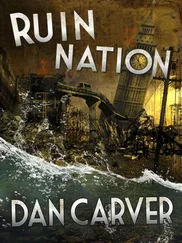Dan Singer - Start-up Nation
Здесь есть возможность читать онлайн «Dan Singer - Start-up Nation» весь текст электронной книги совершенно бесплатно (целиком полную версию без сокращений). В некоторых случаях можно слушать аудио, скачать через торрент в формате fb2 и присутствует краткое содержание. Жанр: Старинная литература, на английском языке. Описание произведения, (предисловие) а так же отзывы посетителей доступны на портале библиотеки ЛибКат.
- Название:Start-up Nation
- Автор:
- Жанр:
- Год:неизвестен
- ISBN:нет данных
- Рейтинг книги:3.5 / 5. Голосов: 2
-
Избранное:Добавить в избранное
- Отзывы:
-
Ваша оценка:
- 80
- 1
- 2
- 3
- 4
- 5
Start-up Nation: краткое содержание, описание и аннотация
Предлагаем к чтению аннотацию, описание, краткое содержание или предисловие (зависит от того, что написал сам автор книги «Start-up Nation»). Если вы не нашли необходимую информацию о книге — напишите в комментариях, мы постараемся отыскать её.
Start-up Nation — читать онлайн бесплатно полную книгу (весь текст) целиком
Ниже представлен текст книги, разбитый по страницам. Система сохранения места последней прочитанной страницы, позволяет с удобством читать онлайн бесплатно книгу «Start-up Nation», без необходимости каждый раз заново искать на чём Вы остановились. Поставьте закладку, и сможете в любой момент перейти на страницу, на которой закончили чтение.
Интервал:
Закладка:
Thompson realized that he was looking at a truly original tool against fraud. With even less data than PayPal had, Fraud Sciences was able to more accurately predict who would turn out to be a good customer and who would not. “I was sitting here, dumbfounded,” Thompson recalled. “I didn’t get it. We’re the best in the business at risk management. How is it that this fifty-five-person company from Israel, with a crackpot theory about ‘good guys’ and ‘bad guys,’ managed to beat us?” Thompson estimated that Fraud Sciences was five years ahead of PayPal in the effectiveness of its system. His previous company, Visa, would never have been able to come up with such thinking, even if given ten or fifteen years to work on it.
Thompson knew what he had to tell Benchmark: PayPal could not afford to risk letting its competitors get hold of Fraud Sci-ences’ breakthrough technology. This was not a company Benchmark should invest in; PayPal needed to acquire the company. Immediately.
Thompson went to eBay’s CEO, Meg Whitman, to bring her into the loop. “I told Scott that it was impossible,” Whitman related. “We’re the market leader. Where on earth did this tiny little company come from?” Thompson and his team of PhDs walked her through the results. She was astounded.
Now Thompson and Whitman had a truly unexpected problem on their hands. What could they tell Shvat? If Thompson told this start-up’s CEO that he had handily beaten the industry leader, the start-up’s team would realize they were sitting on something invaluable. Thompson knew that PayPal had to buy Fraud Sciences, but how could he tell Shvat the test results without jacking up the company’s price and negotiating position?
So he stalled. He responded to Shaked’s anxious e-mails by saying PayPal needed more time for analysis. Finally, he said he would share the results in person the next time the Fraud Sciences team was in San Jose, hoping to buy more time. Within a day or two, Shaked was on Thompson’s doorstep.
What Thompson did not know, however, was that the Fraud Sciences founders—Shaked and Saar Wilf, who served together in Israel’s elite army intelligence unit, called 8200—were not interested in selling their company to PayPal. They just wanted Thompson’s blessing as they proceeded down a checklist of due diligence requirements for Benchmark Capital.
Thompson went back to Meg: “We need to make a decision. They’re here.” She gave him the go-ahead: “Let’s buy it.” After some valuation work, they offered $79 million. Shaked declined. The Fraud Sciences board, which included the Israeli venture firm BRM Capital, believed the company was worth at least $200 million.
Eli Barkat, one of the founding partners of BRM, explained to us his theory behind the company’s future value: “The first generation of technology security was protecting against a virus invading your PC. The second generation was building a firewall against hackers.” Barkat knew something about both these threats, having funded and built companies to protect against them. One of them, Checkpoint—an Israeli company also started by young alumni from Unit 8200—is worth $5 billion today, is publicly traded on the NASDAQ, and includes among its customers the majority of Fortune 100 companies and most national governments around the world. The third generation of security would be protecting against hacking into e-commerce activity. “And this would be the biggest market yet,” Barkat told us, “because up until then, hackers were just having fun—it was a hobby. But with e-commerce taking off, hackers could make real money.”
Barkat also believed that Fraud Sciences had the best team and the best technology to defend against Internet and credit card fraud. “You’ve got to understand the Israeli mentality,” he said. “When you’ve been developing technology to find terrorists—when lots of innocent lives hang in the balance—then finding thieves is pretty simple.”
After negotiations that lasted only a few days, Thompson and Shaked agreed on $169 million. Thompson told us that the PayPal team thought it could get away with a lower price. When the negotiating process began and Shaked stuck to the higher number, Thompson assumed it was just a bluff. “I figured I’d never seen such a convincing poker face. But what was really going on was that the Fraud Sciences guys had a view of what their company was worth. They were not sales guys. They weren’t hyping it. Shaked just played it straight. He basically said to us, ‘This is our solution. We know it is the best. This is what we think it’s worth.’ And that really was the end of it. There was a matter-of-factness that you just don’t see that often.”
Soon after, Thompson was on a plane to visit the company he had just purchased. During the last leg of the twenty-hour flight from San Francisco, about forty-five minutes before landing, as he sipped his coffee to wake up, he happened to glance at the screen in the aisle that showed the plane’s trajectory on a map. He could see the little airplane icon at the end of its flight path, about to land in Tel Aviv. That was fine, until he noticed what else was on the map, which at this point showed only places that were pretty close by. He could see the names and capitals of the countries in the region, arrayed in a ring around Israel: Beirut, Lebanon; Damascus, Syria; Amman, Jordan; and Cairo, Egypt. For a moment, he panicked: “I bought a company there? I’m flying into a war zone!” Of course, he’d known all along who Israel’s neighbors were, but it had not quite sunk in how small Israel was and how closely those neighbors ringed it. “It was as if I were flying into New York and suddenly saw Iran where New Jersey was supposed to be,” he recalled.
It didn’t take long after he stepped off the plane, however, before he was at ease in a place that was not shockingly unfamiliar, and that treated him to some pleasant surprises. His first big impression was in the Fraud Sciences parking lot. Every car had a PayPal bumper sticker on it. “You’d never see that kind of pride or enthusiasm at an American company,” he told us.
The next thing that struck Thompson was the demeanor of the Fraud Sciences employees during the all-hands meeting at which he spoke. Each face was turned raptly to him. No one was texting, surfing, or dozing off. The intensity only increased when he opened the discussion period: “Every question was penetrating. I actually started to get nervous up there. I’d never before heard so many unconventional observations—one after the other. And these weren’t peers or supervisors, these were junior employees. And they had no inhibition about challenging the logic behind the way we at PayPal had been doing things for years. I’d never seen this kind of completely unvarnished, unintimidated, and undistracted attitude. I found myself thinking, Who works for whom?”
What Scott Thompson was experiencing was his first dose of Israeli chutzpah. According to Jewish scholar Leo Rosten’s description of Yiddish—the all-but-vanished German-Slavic language from which modern Hebrew borrowed the word— chutzpah is “gall, brazen nerve, effrontery, incredible ‘guts,’ presumption plus arrogance such as no other word and no other language can do justice to.” 2An outsider would see chutzpah everywhere in Israel: in the way university students speak with their professors, employees challenge their bosses, sergeants question their generals, and clerks second-guess government ministers. To Israelis, however, this isn’t chutzpah , it’s the normal mode of being. Somewhere along the way—either at home, in school, or in the army—Israelis learn that assertiveness is the norm, reticence something that risks your being left behind.
Читать дальшеИнтервал:
Закладка:
Похожие книги на «Start-up Nation»
Представляем Вашему вниманию похожие книги на «Start-up Nation» списком для выбора. Мы отобрали схожую по названию и смыслу литературу в надежде предоставить читателям больше вариантов отыскать новые, интересные, ещё непрочитанные произведения.
Обсуждение, отзывы о книге «Start-up Nation» и просто собственные мнения читателей. Оставьте ваши комментарии, напишите, что Вы думаете о произведении, его смысле или главных героях. Укажите что конкретно понравилось, а что нет, и почему Вы так считаете.












